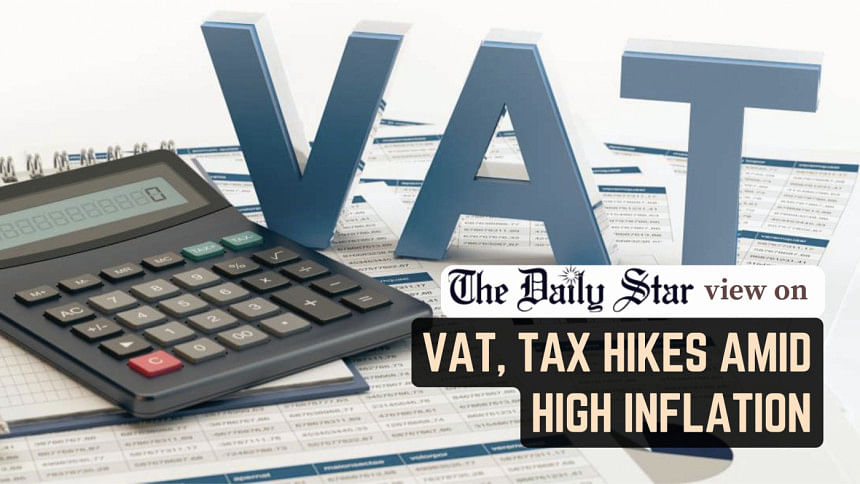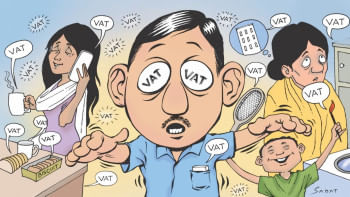Govt must reverse anti-poor decisions

The National Board of Revenue's (NBR) decision to hike the value-added tax (VAT) and supplementary duty (SD) on more than 100 products is unwise and poorly timed, especially considering the persistent inflation and rising food prices. As economists and business leaders have pointed out, such a decision in the middle of the fiscal year is unlikely to bode well for the economy.
The increase in VAT and SD on arguably non-essential products—such as mobile phones, broadband internet, medicine, imported fruits, tissue paper, motorcycles, and liquified petroleum (LP) gas—is apparently intended to meet one of the conditions of the IMF for its $4.7 billion loan support. Under the IMF programme initiated in 2023, Bangladesh needs to raise its tax-to-GDP ratio by increasing tax revenue collection. However, the country has so far fallen short of the targets. To achieve the IMF-recommended ratio, the government must collect an additional Tk 12,000 crore this fiscal year. The IMF is reportedly considering making the tax collection target a Quantitative Performance Criteria (QPC)—a mandatory benchmark for unlocking instalments under the loan programme. This puts immense pressure on the government to boost revenue mobilisation to secure the next tranche of the IMF loan.
But the question is whether drastically raising VAT and SD on products that are not necessarily luxurious is the right strategy. Indirect taxes such as VAT and duties are inevitably passed on to the end consumers. But people's purchasing power has not kept pace with inflation and rising food prices in recent years. Furthermore, as one businessperson told our correspondent, businesses are likely to either evade taxes or increase product prices to absorb the higher VAT burden. Additionally, even in this digital era, many business transactions remain untraceable, and revenue collection is not fully automated. As a result, meeting the revenue collection target by raising VAT and SD rates—a decision made without consulting stakeholders or experts—seems overly ambitious.
Another similar move that goes against the interests of consumers was the suspension of the Trading Corporation of Bangladesh (TCB) and the Department of Agricultural Marketing's truck sale programmes for essentials and agricultural products. It is unclear why the government would halt such pro-poor measures.
Instead of relying on indirect taxes that disproportionately affect the poorer sections of society, the government could have considered alternatives such as imposing a wealth tax or intensifying efforts to collect income taxes through targeted drives. The numerous tax exemptions granted to institutions and businesses without clear rationale should also be reviewed and restructured. Similarly, government expenditure could be reassessed to eliminate unnecessary costs. Such measures can still be taken instead of summarily raising VAT and duties. Finally, the government should engage with the IMF to renegotiate loan conditions, particularly those tied to the credit programme initiated by the previous regime. The bottom line is, poor and middle-class citizens must be spared additional monetary burden at this critical time.

 For all latest news, follow The Daily Star's Google News channel.
For all latest news, follow The Daily Star's Google News channel. 









Comments